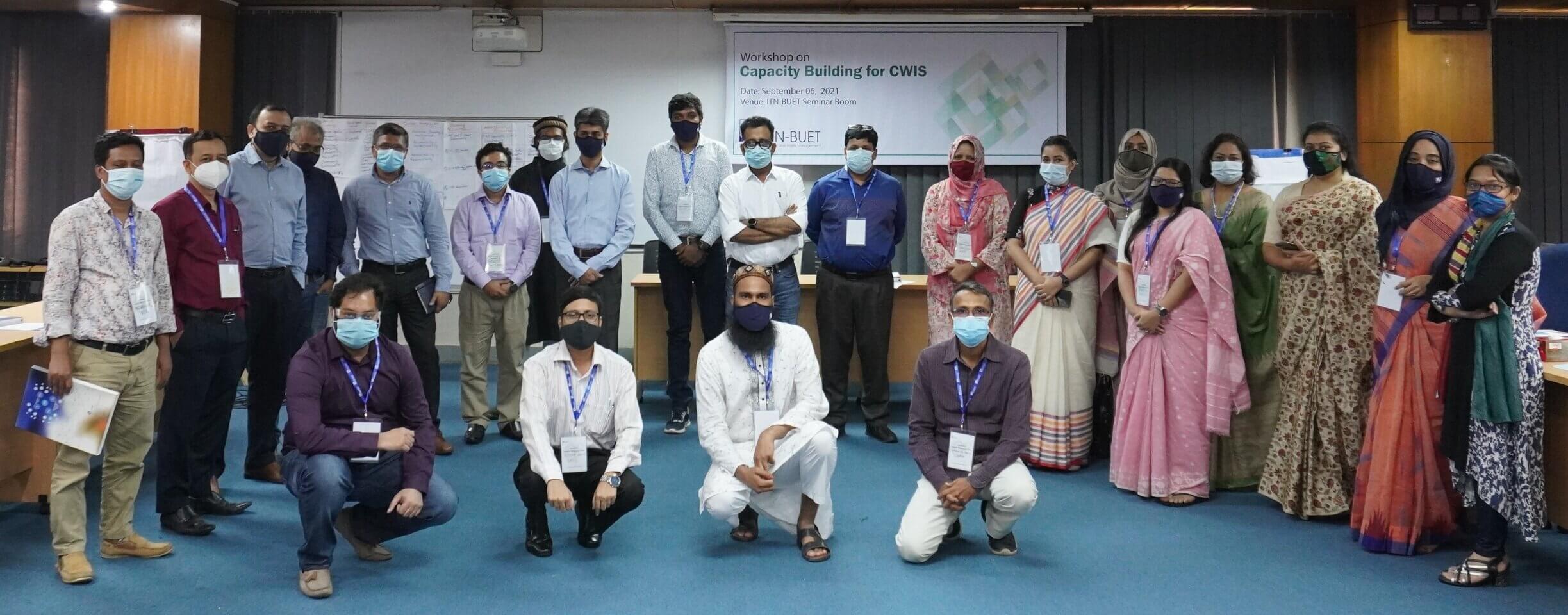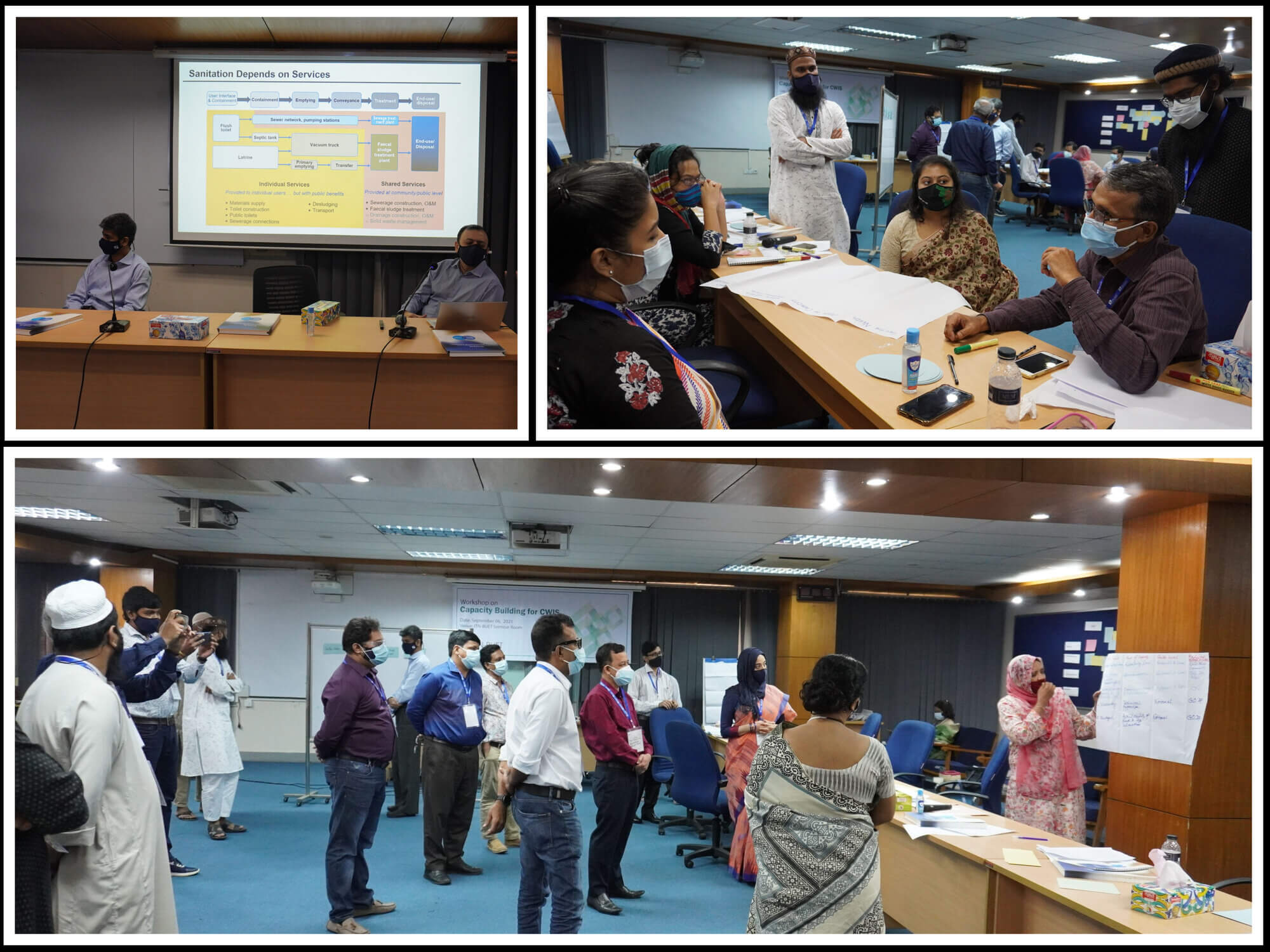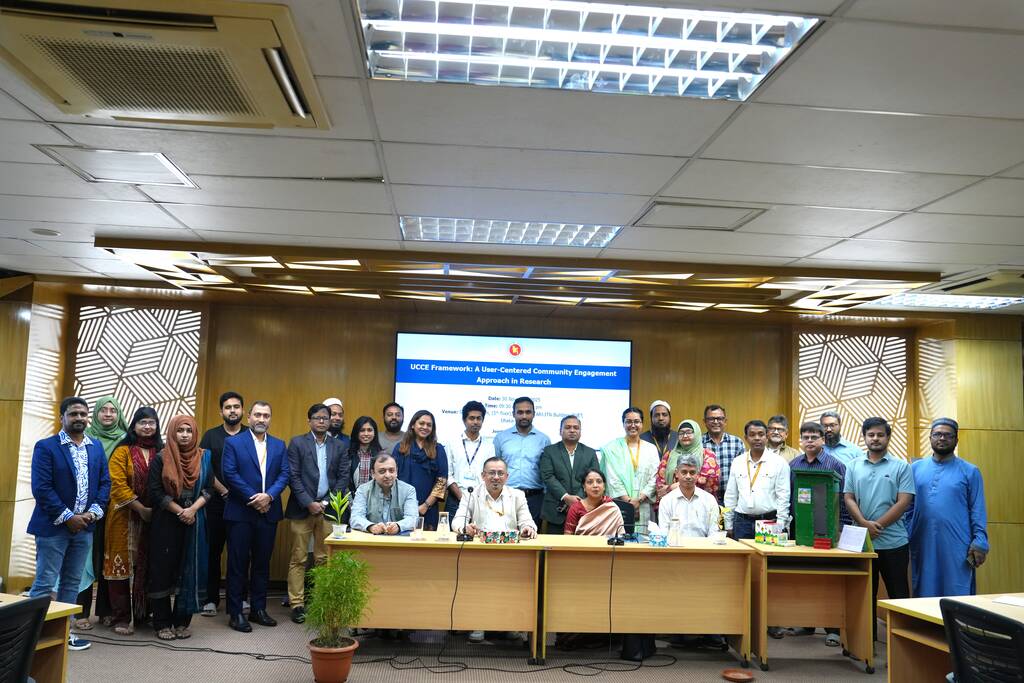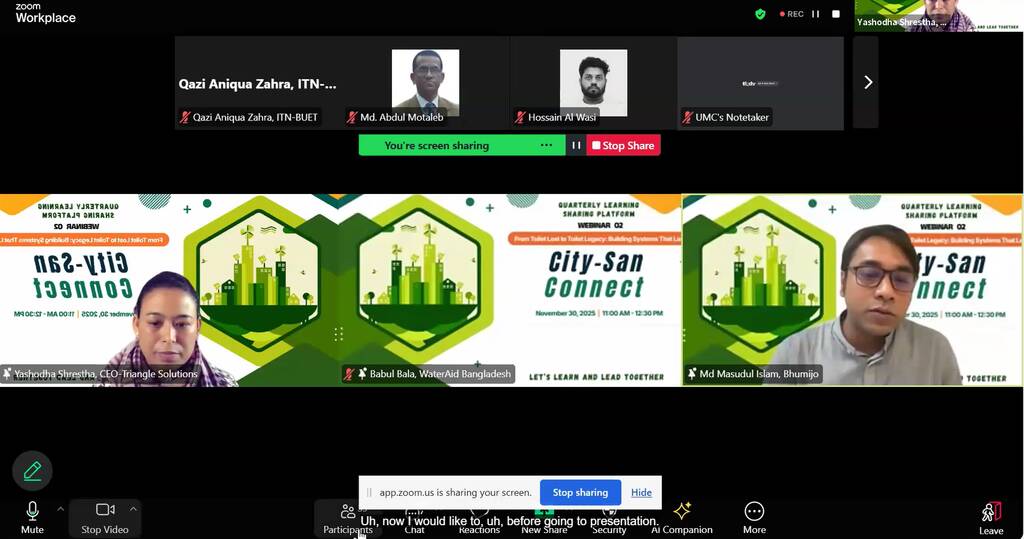The sector needs to go a long way in terms of CWIS and capacity building, which is crucial for achieving the results in the sanitation sector – opined by the participants of the workshop held on 6th September, 2021. Citywide Inclusive Sanitation (CWIS) has evolved as a new agenda to ensure safely managed, equitable and sustainable sanitation services for the urban dwellers. It conceptualizes sanitation services as outcomes and system functions rather than technical interventions. It is a public service approach to planning and implementing urban sanitation systems, which also improves private-sector incentives. As a capacity-building (CB) hub, ITN-BUET, in association with the CWIS-FSM Support Cell, organized the Workshop on Capacity Building for CWIS to learn the needs from the sector stakeholders.

In his welcome speech, Professor Dr. Tanvir Ahmed, Director, ITN-BUET, said that the sector should develop the mindset of providing service-oriented facilities to all citizens. He emphasized that creating the enabling environment to achieve the CWIS service framework and CWIS principles should be the new development agenda. He urged all the sector actors to share their knowledge, attitude and practice to understand the CB needs on CWIS.
Mr. Mohammad Imtiaz Sharif, Training Specialist, ITN-BUET and Mr. Sanjoy Mukherjee, Social Development Expert, CWIS-FSM Support Cell, facilitated the sessions. Throughout the workshop, the participants identified the existing resource materials, CB needs and additional material requirements on CWIS and actions to fulfill the CB needs. At the end of the group exercises, Mr. Alauddin Ahmed, Project Manager, ITN-BUET, articulated the way forward for developing comprehensive materials on CWIS and highlighted the need for contextualization.
The workshop aimed to bring all the sector stakeholders on the same platform during the material development process on CWIS. Around 30 participants from different organizations attended the half-day-long workshop.

Mr. Md. Shafiqul Hassan, Project Director, DPHE, and Co-Chair, CWIS-FSM Support Cell, in his closing speech, said that there has been several interventions in the country that addressed the CWIS principles even though CWIS is a very recent approach towards safely managed sanitation. Capacity-building is one of the major challenges that should be emphasized more. Existing policies and good practices should be promoted to bring everyone on the same page. He appreciated the participants for their active and fruitful participation in the workshop.





